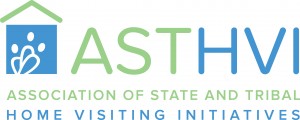Results
Linchpin delivers.
And we don’t stop until we do.
Don’t take our word for it. See what our clients have to say.
Client Testimonials
It has been my very good fortune, in my capacity as a volunteer leader of the Campaign for the Civic Mission of Schools, to work with Catriona Macdonald at Linchpin Strategies as she has guided our efforts to achieve sound, effective federal policies in the area of civic learning. I have been around this town a long time, and I have seen lobbying and lobbyists from every conceivable angle—as a Hill staffer, White House official, public affairs consultant and, on rare occasions, as a lobbyist myself. And, make no mistake about, Catriona is one of the best. Her profile may not be high and her firm may not be huge, but Catriona and her colleagues do a terrific job advocating on behalf of their clients, and those clients are lucky to have her in their corner. I know I sure am.
When our United Way of Miami-Dade Women’s Leadership group traveled to Washington, D.C. to advocate for early childhood care and education, we turned to Catriona Macdonald and Linchpin to help us develop our strategy and messages. Catriona was with us every step of the way. She offered timely and substantive input on legislative and budget processes, as well as on early childhood policy, that was invaluable in planning our trip, fine-tuning our talking points and getting the most from our meetings on the Hill and at the Department of Education. Catriona attended each of our meetings as the subject matter expert, giving us greater confidence and credibility to speak up on a topic we are passionate about: support for working parents and access to quality early learning for every child.
ASTHVI is fortunate to have the team at Linchpin Strategies supporting and guiding us through the creation and growth of our new national association. Thanks to their leadership, in less than a year ASTHVI has assumed a key role in policy discussions with Capitol Hill, the Administration, and the home visiting coalition. Linchpin is extremely skilled and knowledgeable about running a diverse membership association. They are a great collaborative partner, working with the Steering Committee to ensure that everything we do is driven by, and responsive to, the needs of our members.
A lot of lobbyists understand talking points and can rattle them off with some capacity, but Catriona’s understanding of the rationale that governs our issues and the philosophy that justifies its existence is as deep and intuitive as any stakeholder. She speaks with conviction, passion, and a depth of knowledge. I couldn’t recommend anyone more highly than Catriona and her team at Linchpin Strategies.
Linchpin Strategies has provided a major contribution to the field of home visiting by supporting the foundation and formation of the Association for State and Tribal Home Visiting Initiatives (ASTHVI). Linchpin’s acumen at organizational development, stakeholder engagement and national policy has positioned ASTHVI to have a meaningful and effective voice in national discussions and decisions about home visiting.
Catriona and Linchpin bring a deep understanding of the legislative process and how individual representatives’ and senators’ offices work. They understand the mechanics and the art of legislating. Catriona has a background in executing policy from a variety of positions, a profile and portfolio custom made for success. I’m glad NCSS has her expertise to make us more effective.
As an Arkansas-based program, we depend on Linchpin to be our eyes and ears in Washington. When the Every Student Succeeds Act was moving through Congress last year, we were pleased that Linchpin, working with home visiting partners, was able to preserve funding for home visiting options. But Linchpin went above and beyond, using their knowledge of our program, familiarity with the bill, and relationships with Congressional offices to create an entirely new potential funding source never before available to school readiness programs delivered in the home. Linchpin’s creativity, tenacity, and know-how maintained existing services, and opened up unanticipated new opportunities for HIPPY to serve more children and families.

Client Success Stories
A New Voice for Children and Families
When funding for the Maternal, Infant, and Early Childhood Home Visiting program (MIECHV) was extended for one year in March of 2014, the home visiting community knew that a lot of work would be needed to keep the program alive. One of the obstacles: although the federal government provided $400 million/year for voluntary home visiting programs, there was no forum for states and tribes to speak with one voice about the importance of home visiting in their communities.
With financial support from the Richard W. Goldman Family Foundation, Linchpin set out in September 2014 to create the Association of State and Tribal Home Visiting Initiatives (ASTHVI). State and Tribal administrators were excited to form a membership-driven organization for peer-to-peer communication, networking, and sharing of best practices. Under Linchpin’s guidance, a steering committee was recruited; mission and by-laws drafted; and priorities identified by the membership with participation of more than 80% of states in the first year alone. When a rumor spread on Capitol Hill that there would be no impact on children and families if the legislation were not extended on time in the spring of 2015, ASTHVI facilitated communication by the states to clarify the need for timely reauthorization. As a result of efforts by ASTHVI and partners in the home visiting coalition, a two-year extension of the MIECHV program was one of very few extensions to be added to Medicare legislation that was passed by Congress in April 2015.

Client Success Stories
Power Behind the Scenes
Sometimes, the most effective advocacy is the quietest. In May 2006, a policy undermining the priority for blind entrepreneurs in federal food service contracts was issued by the Department of Defense and the Department of Education. Because it had been developed at the request of Congress and the administering agency had signed off, there seemed to be no promising court of appeal.
Linchpin set up a meeting with a little-known entity in the Office of Management and Budget that is responsible for coordinating policies involving multiple federal agencies and potentially significant impact on private enterprise. Working with partners, Catriona outlined the legal and contracting case to be made to the Administration officials and lawyers who attended the meeting, and recruited and prepared the experts who would have greatest credibility with the federal audience. The result was a hold on the policy prior to promulgation of regulations. In the interim, Linchpin worked with partners to educate federal officials about the ways in which the proposed policy violated the letter and spirit of the law creating opportunities for blind entrepreneurs to own and operate their own food service businesses. As a result, the proposed regulation implementing the policy was rejected even before publication.

Client Success Stories
Launching the Campaign
After President Obama announced a major early childhood education initiative in his 2013 State of the Union, the First Five Years Fund launched Grow America Stronger, a collaborative campaign to expand federal funding for early childhood education. With former Obama staffer Jim Messina and FFYF Executive Director Kris Perry as co-chairs, the campaign turned to Catriona, a veteran FFYF consultant, to serve as campaign manager. Linchpin worked around the clock with a team of government relations professionals, communications specialists, and national and state advocacy partner organizations to make a broad, nuanced, and effective case for additional investments in early childhood education.
For more than a year, Linchpin helped shape strategy, tactics, messaging, coordination with partners, and directed daily campaign activities. In January 2014, when the FY 2014 appropriations bill was finalized after the government shutdown and Ryan-Murray budget agreement, accounts funding early childhood education were increased by a total of $1.4 billion. The addition of resources for early childhood education was highlighted by The Washington Post as one of the largest increases to any related set of programs, government-wide, in the legislation.

Client Success Stories
Going the Extra Mile
When Congress created a fund of nearly $1 billion to evaluate medical outcomes and compare different approaches to treatment, it seemed that research might be conducted to help patients with limb loss and their clinicians determine the most effective approaches to prosthetic care. An orthotics and prosthetics outcomes research agenda is vital to ensuring that patients receive optimal care, as well as to reducing future health care costs. However, resources were not provided: the fund is focused on health care conditions that affect larger numbers of patients.
In response, the American Orthotics and Prosthetics Association retained Linchpin to obtain research funding for an evidence base that would inform prosthetic and orthotic patient care. With multiple research agencies each shifting responsibility elsewhere, and significant federal budget cuts, the task seemed daunting. Through hard work and perseverance, Linchpin identified a Congressional champion who was willing to fight for this important priority. A $10 million research account was created in the FY 2014 appropriations bill, focused for the first time on needed outcomes research. But Linchpin didn’t stop there. Working with our Congressional champion, we successfully advocated to minimize the administrative overhead retained by the agency, and significantly increased the funding awarded in direct research grants.

Client Success Stories
New Resources for Evidence-Based Practice
The passage of federal home visiting legislation in 2010 was a watershed event for programs designed to assist parents in their role as their child’s best and most important teacher. For the first time, national standards, and funding for programs that met those standards, helped states determine which models were worth replicating and expanding.
The Home Instruction for Parents of Preschool Youngsters program, known as HIPPY, was one such model. HIPPY asked Linchpin to help boost its visibility with federal agencies, Congress and the home visiting community, and to identify growth opportunities and potential liabilities in legislation and regulation.
Dozens of HIPPY programs partner with local school districts to prepare at-risk young children for success in school using Title I and Title III Elementary and Secondary Education Act funds. Linchpin identified provisions of the law that were at risk of being dropped in the ESEA reauthorization, and worked proactively with partners to ensure that the new bill would continue to permit home visiting programs to be eligible for funding. But just defending the status quo wasn’t enough. Linchpin identified an opportunity to create an entirely new potential funding source for home visiting. We worked creatively with Congressional offices to develop legislative language that could achieve bipartisan support, and succeeded in making home based early literacy programs eligible applicants for literacy grants created in the new legislation.







